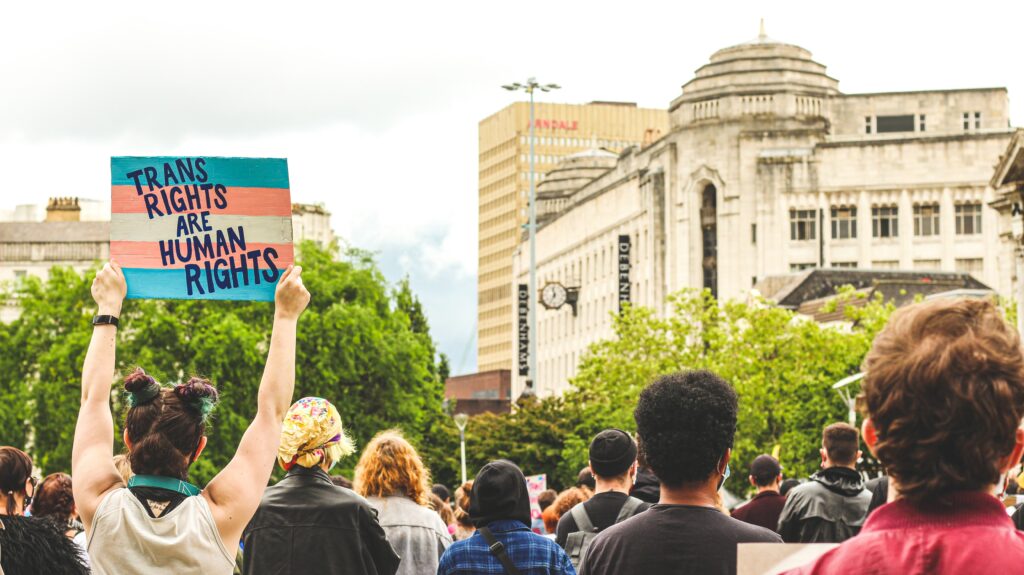
I came out of the closet in 2016, nearly seven years ago now. It was an exciting time for me in many ways. After 44 years of living in the closet, I was finally free to live “in congruence with reality” as an openly gay man. And the United States in 2016 seemed to have reached a tipping point. The Supreme Court had just made same-sex marriage the law of the land, and support for LGBTQ+ people was at an all-time high. My first Pride Month was thrilling for me, an opportunity to express myself authentically and to celebrate with new friends. I wrote about my first SF Pride Festival here.
Since then I’ve done a lot of writing about my experiences, both here on my blog and, especially, over on Twitter, where I interact with thousands of friendly (and many not-so-friendly) people every day. Here are some favorite Pride Month posts:
A Different Kind of Pride Month
What a difference seven years makes. I wish we could have spent this month waving pride flags, posting cute “Love is Love” memes and having fun at parties. But no. This year, Pride has to be a protest. Our trans and non-binary siblings are under attack. Our LGBTQ+ community is divided and fighting itself. We need Pride now more than ever.
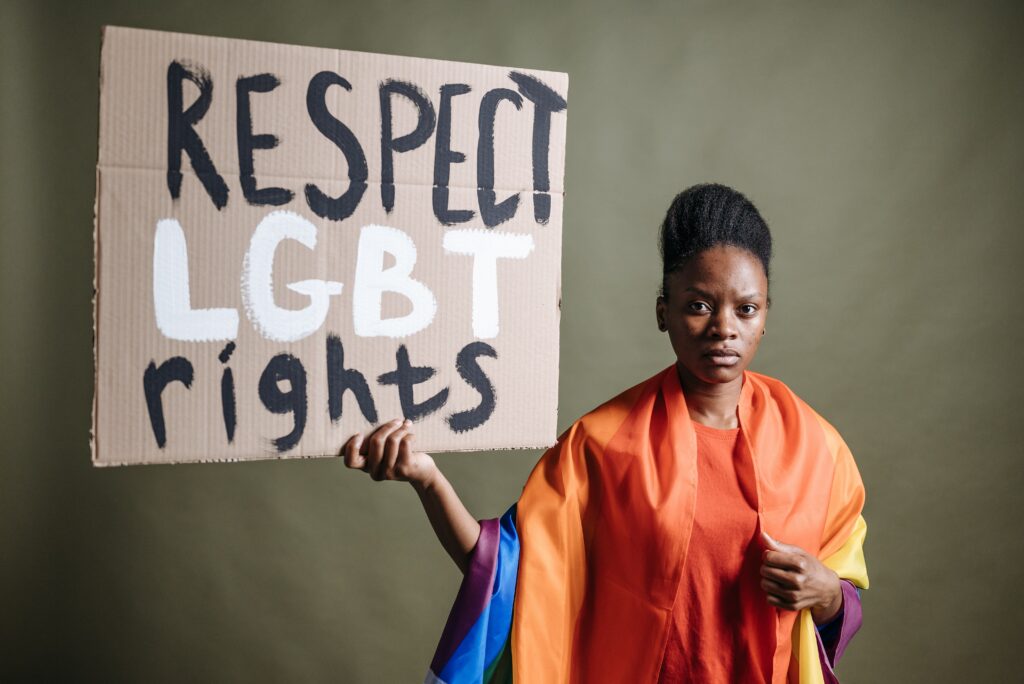
It’s a particularly nasty time to be queer all over the world. Just last month, Uganda’s president signed into law a draconian anti-LGBTQ law that punishes gay sex with life in prison.
And back home in the “enlightened” United States things aren’t as different as we’d like to think. Last June, when the conservative supermajority of the Supreme Court overturned Roe v. Wade, Justice Thomas indicated that Obergefell should be next. Every day on Twitter, I’m reminded that right-wing media, religious leaders and politicians have a vested interest in keeping their base fired up and angry. Their target of choice? LGBTQ+ people. More specifically? Trans people. From outrage around Dylan Mulvaney and Lia Thomas to the 83 anti-trans bills that have already passed in statehouses around the country in 2023 alone, trans people are the target du jour for conservative Americans.
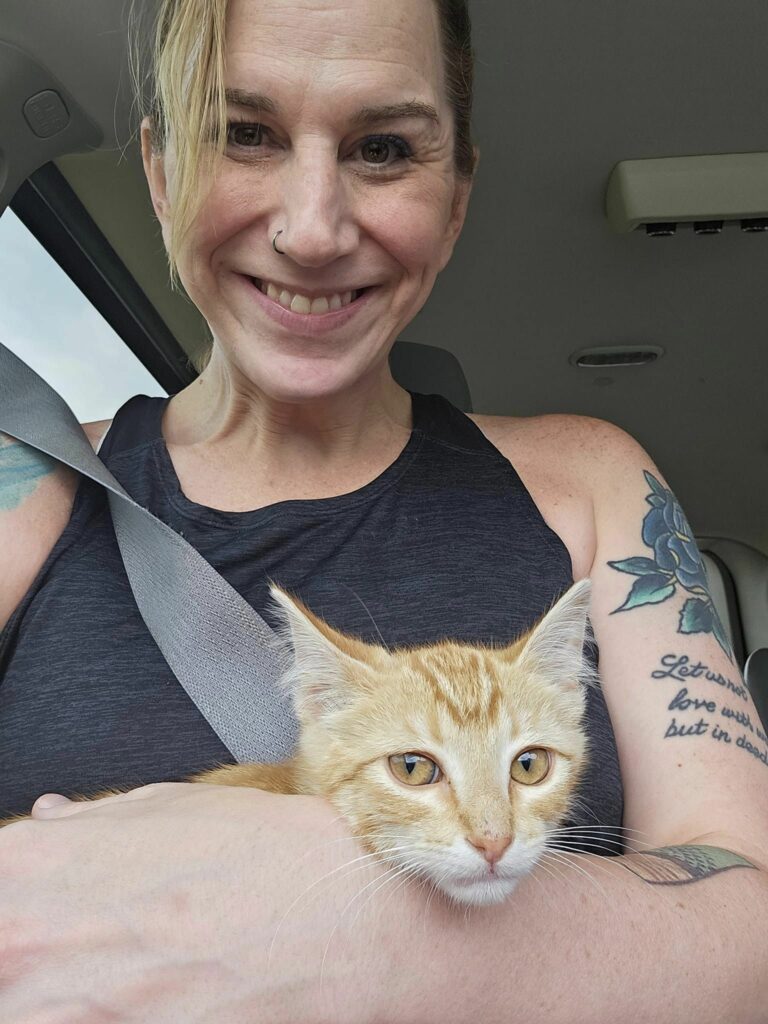
In my experience, many conservatives simply don’t know any trans people, and sometimes we fear what we don’t know and understand. My friend Natalie Drew has graciously agreed to share some of her life with my audience today, and I’m so thankful. I first met Natalie over on Twitter, and I have found her to be an incredibly kind and Christlike person. I’m so thankful for her witness and willingness to share her story.
Natalie! Thank you so much for agreeing to share your story with my blog readers and mailing list. First of all, can you just tell us a little bit about yourself? Maybe who you are, where you live, a little about your family and work?
Well, my name is Natalie Drew and I’ve been working in HR for the past 13 years. I live in the Grand Rapids, MI area with my wife, Heather, and our two teenagers. We are recent transplants to the area. In November 2021, we moved from College Station, TX, after the political climate in Texas continued to deteriorate for the trans community. In fact, my first time to ever step foot in the state of Michigan was the day I drove up to begin the next phase of my career.
Tell us about your faith background. Did you grow up in a Christian family? When did you first make your Christian faith your own and what was that like for you?
Oh, my faith background. I was born into the Independent Fundamental Baptist Church. In case you aren’t familiar with the IFBC, count yourself blessed. I have found that the only word that can fully encapsulate the IFBC world is “cult”. In the 11th grade, my family moved back to our native Texas from southern Indiana. This led to our transition to the progressive safe haven of the Southern Baptist Convention. All kidding aside, this move helped us break free from fundamentalism, for which I am grateful. When I was 17, I left for college at Texas A&M (where I met my wife, Heather) and tried to continue with a nondenominational student bible study, but eventually I largely stopped attending altogether. I was a “cultural Christian”. I joined the Army in 2004, and from then until I was medically retired after back surgery in 2010, I could probably count on one hand the number of times we attended church.
Then we moved to Houston as I began my career in HR. In 2011, we moved to the suburbs and happened to find ourselves with a Church of Christ across the street. Given that Heather grew up Church of Christ, we decided to check it out just because we knew our parents would ask if we visited. That decision changed our lives forever. We experienced love in a church for the first time. We became passionate about our faith, and quickly embraced the tenets of Christian nonviolence. We couldn’t read the red letters without seeing nonviolence everywhere. Ironically, it was also a position that led us to leave that church after a gun issue. Then we moved to College Station in 2018, and found there was no church body there for us. For the next few years, we would either travel back to Houston or watch church online.
In 2021, we relocated to Michigan and happened to find ourselves in a Christian Reformed Church. This was quite the surprise for us, given my previous interactions with Reformed Twitter. We’re not even Calvinists! But this has been truly the most reinvigorating moments in our faith life. We joined a liturgical church for the first time, and while the CRC has made it clear that we are not welcome in the denomination, our local church body has done nothing but open their arms and welcome us.
When did you first become aware of the LGBTQ+ community? Do you remember any early messaging you received about queer people, either from your family, your faith community or just in general?
I grew up hearing about the LGBTQ+ community almost weekly at church, but that was usually in the context of the pastor screaming about the “sodomites burning in a lake of fire” and that AIDS was a punishment from God. This was reinforced in the home with comments that were made very casually that echoed sentiments heard from the screaming pastors. This was further reinforced in the fundamentalist schools we attended. This was what I lived in for my first 17 years.
When I was in college, my youth minister from Austin was convicted of sexually assaulting a teenage boy in the youth group. The youth minister had been accused of similar acts at his previous church in the Dallas area. I recall this vividly, as I was in the midst of a very homophobic period of my life. I believed that if I could hate who I am enough, then I could stop being who I am. This internalized homophobia nearly drove me to unspeakable crimes after the conviction of my youth minister.
I don’t think I really began to receive different messaging until I had joined the Army. Now, that messaging wasn’t exactly up to corporate DEI standards, but even the offensive commentary that was common, there was also an understanding that these are the people who will guard your life with theirs, so gay or straight…black or white…it didn’t really matter.
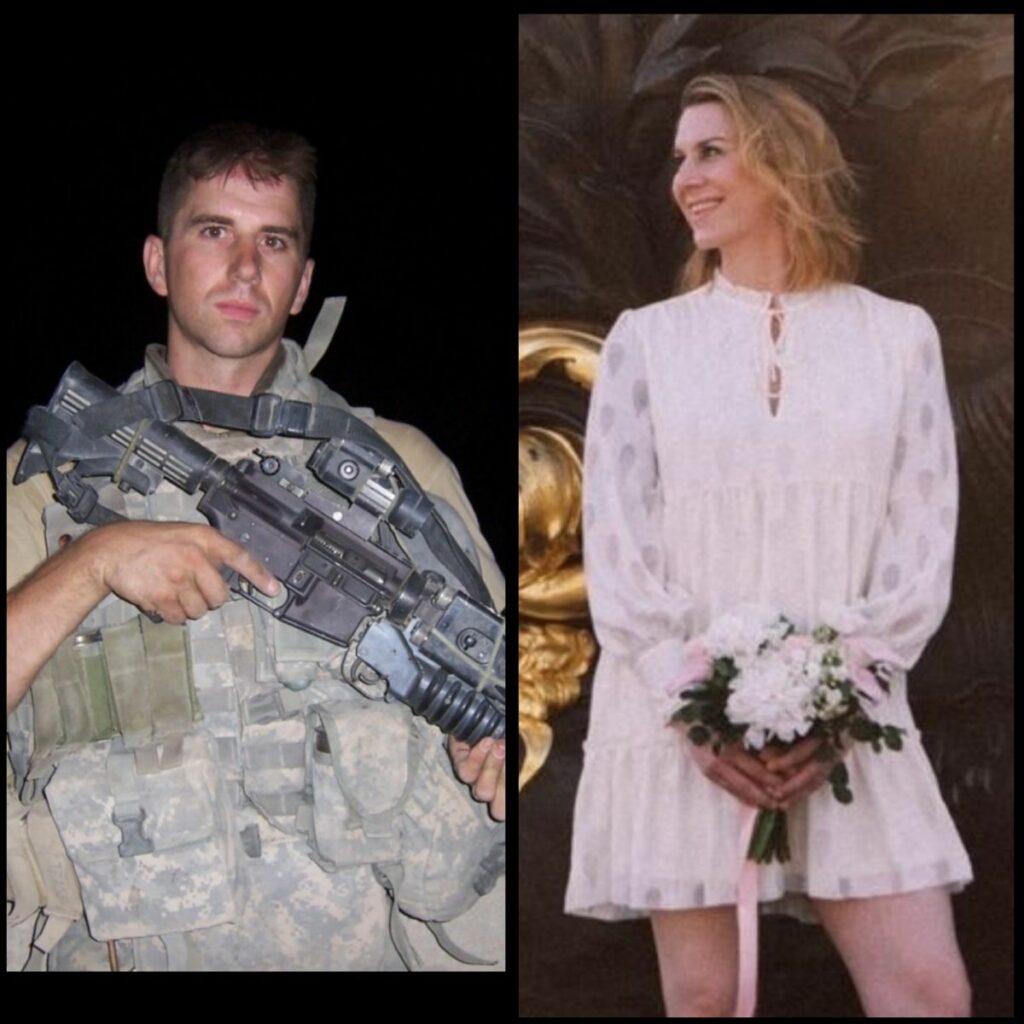
When did you first know that there was something different about you? Can you walk us through that awakening/awareness and any confusion or compartmentalization that caused in you?
I remember realizing around 5 or 6 years old that I was not like the boys in my class. I never felt like I fit with them. I was always drawn more towards friendships with girls in my class. I just felt more at ease. I just felt more “right.” I don’t think there was singular “aha!” moment, but it was just more a sense of “rightness.”
But this was while living in a fundamentalist cult in 1985. Had I even been in a safe enough situation to vocalize this disconnect, the language and vocabulary to do so didn’t really even exist then. Or, at the very least, it was nowhere to be found in the world I grew up in. It began to become far more “real” to me as I got closer to 10 and 11 years old, and once puberty started, I knew I was not a boy. It was all just so wrong. I knew whatever changes I was going through were wrong. And I had no idea why. So I begged God every night to either let me wake up as a girl, or to just kill me and get this pain over with.
When did you realize that you were trans? How did you come to that realization?
I don’t think the words “I am transgender” really came out of my mouth until shortly before I came out to Heather. I grew up in such an insular world, that it took that long for me to really grasp the terminology, gain a better understanding of what it meant to be transgender, and to really address other internal struggles that finally gave me space to wrestle with who I am. My embrace of nonviolence was key to this. I’ve often said that embracing nonviolence towards others was easy. Where I struggled was with embracing nonviolence towards myself. I hated myself. I beat myself up. I fought myself. Daily. But once I embraced nonviolence towards myself, the space was created that allowed me to really peel away at the onion. Then everything just clicked.
What was the first “breakthrough” for you? When did you begin to realize that queerness and Christianity might actually be able to coexist for you?
There are several people who have been central in getting me there. Austen Hartke was the one who helped me most with the theological aspect, especially as it related to my transness. He was the one who introduced me to the literary device of “merism”, which was one of those perspective changing moments, especially as it related to the oft-weaponized Genesis 1:27.
Bridget Eileen Rivera was central to helping me have a much more robust understanding of traditional views of sexuality in the church, which do not look similar to modern Protestant claims of “traditional sexuality”. It was also the grace I saw her show, and it helped me to realize that we can show grace in the face of these disagreements. Church history is full of disagreements on these issues. Just as the Reformers had differing views on human sexuality than the Vatican without denying one’s salvation, so too can we have a similar understanding today without denying the faith of others.
And finally, Matt Nightingale. Matt, the grace and kindness in which you carry yourself in the face of relentless attack is a testament of the depth of your faith. If we are known by our fruit, and you as a gay man are producing the fruits of the Spirit daily, then who am I…or anyone…to deny the reality of your faith?
Can you walk us through the process of coming out as a trans woman? What has that been like for you?
Coming out is certainly a process. I told Heather in 2014 or 2015, I believe. Maybe sooner. Honestly, I don’t think either of us were in a place in our lives, as we were still relatively new to a rediscovered faith, to transition then. We were still unpacking so much from our childhood faith, that transition would have probably been too difficult for us at the time.
But Heather, to her credit, did not use that period to stand still. She grew and learned. She did the legwork, and eventually she began to move towards embrace. I floated it to a couple coworkers, but that became a nightmare as I was outed by someone to my company execs. I was called into their office and asked. To their credit, they were supportive, even though I denied it. But that scared me back further into the closet.
I had, with the blessing of my wife and kids, began HRT but was doing everything possible to mask the physical changes. Then one day, while at my job at Texas A&M, I came out to my friend Victoria. I recall her laughing because she was starting to wonder if I only worked out my pecs. Yeah, I was not masking the physical changes as well as I thought I was. That moment, though, started a domino effect. Next Jess. Next Emily. Next our corporate HR team. And finally, in December 2019, I sent an email to the entire management team at my company. On January 6, 2020, I walked into work for the first time as Natalie.
But it didn’t stop there. I still hadn’t come out to our extended families. In February of 2020, I came out on Twitter and Facebook. There was hatred. But there was so much support. We lost family and friends, but we gained chosen family. I don’t believe you’re ever truly done “coming out”. Not until the day that we no longer need to.
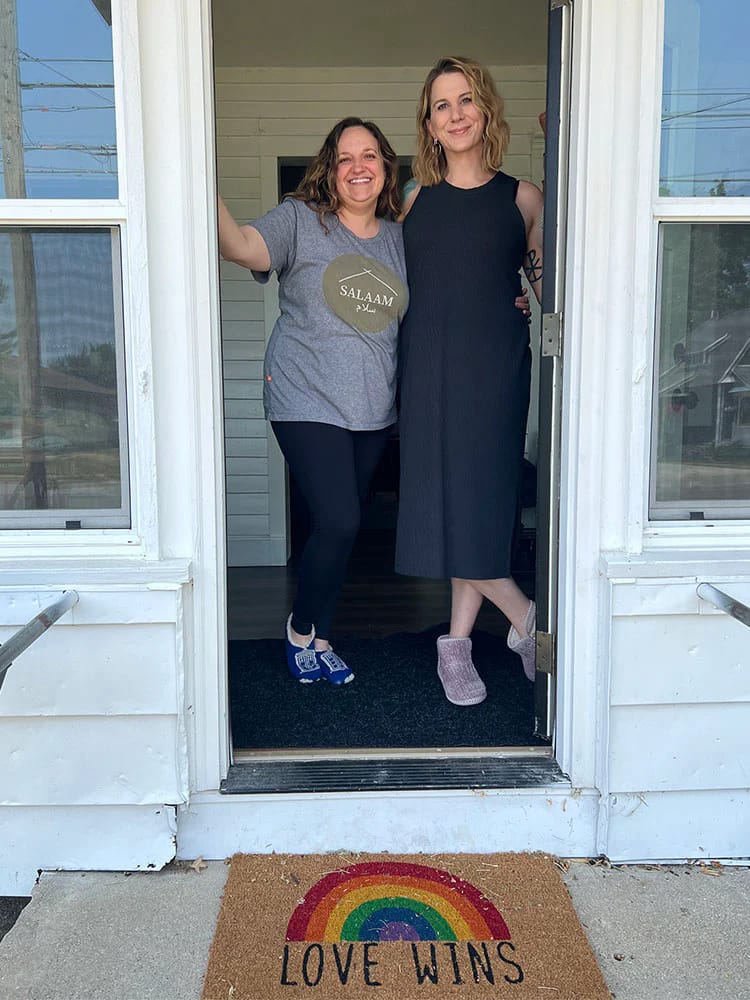
You are married to a woman, and you have two children together. How have your wife and children responded to your transition?
Heather struggled at first, which was entirely understandable. As she recently said, though, she first started with wanting me to stay alive. Once she began to see my true self shine through, it became a desire to see me thrive.
When I talk with transgender people who are in the early stages, I always encourage patience. Not just with the changes, but especially with their partners. There is an urge to sprint, but we’ve been stretching for years and are ready to take off. Our partners are usually just finding out. They haven’t stretched. They have to “warm up” first. I told Heather from the beginning that I will only go as fast as she can or is willing to. Not that it’s an excuse to kick the can down the road, but a realization that if we wanted to survive, we need to approach it with mutual love and respect. We told the same to the kids. “We transition as a family, or we don’t transition at all.”
I was prepared to just grind through life as long as I could, but they saw the night and day difference just after two months on hormones. They responded with love, support, and grace because that was the standard we expected from everyone. We love each other, and we knew that we could work through whatever we faced. Transition, though, was never forced on anyone. Everyone had veto power. And seven years later, I have no bigger and fiercer allies that Heather and our two kids.
How has your Christian faith changed or grown since coming out as a trans woman?
My faith has deepened so much since coming out! I no longer struggle with bitterness and a wall between God and me. Depression and self-hatred do not make for a fertile garden for one’s faith. Coming out and transitioning not only tore down that wall, but also happened at a time that coincided with the formation of the Weird Christian Twitter community and COVID lockdowns. I met a community online that blew up my life. I met people across the faith spectrum who both affirming and non-affirming. Those who were wrestling with these topics. A community of theological misfits who were struggling to find a home in the church. I saw a beauty in the diversity of our faith. I saw a more eclectic faith that only made God more beautiful to me.
When we moved to Grand Rapids, I was worried though. We had gone without a church for a few years, and I recall my first weekend here. I went to church with my chosen sister Lynell and her family. As Lynell and her husband Dan drove me around the city to show me GR, I was shocked at the number of Reformed churches. I had no idea that Grand Rapids is a major hub of Reformed Christianity. I was nervous. I had never really had many positive interactions with that segment of the church on social media.
But we found a home that has reinvigorated our faith again. We are excited to go to church. To stay late talking with our siblings in Christ. To serve. We see God at work here, and we see the fruit already as people who have long been rejected are finding a home here.
How do you respond to people who say trans people are mentally ill?
I say that many of us are, just as many cis people struggle with mental illness. I know I have struggled with chronic depression and chronic anxiety. I have PTSD. I used to really struggle with gender dysphoria. Thankfully, these have all been treated. EMDR helped with the PTSD. HRT helped with the dysphoria. They make their claims as if struggling is shameful. I reject that notion. It sucks, but it’s not shameful.
Now, being trans itself is not a mental illness. There is zero evidence that being trans is a mental illness, and in fact, the fact that we see transitioning lowers suicidality is evidence that it’s not the fact of being trans that’s a mental illness. Much of the associated mental illness is really the result of societal/familial rejection or something that is addressed by simply allowing kids to transition prior to suffering the harmful effects of going through the wrong puberty.
How do you respond to people who say children cannot know they are trans?
I knew at 5 or 6, and to make such a statement tells me that they’ve never actually engaged honestly with a trans person, much less a trans child. Not to mention, the parents of so many trans kids have very similar stories. These were not parents who were uber-liberal trying to “trans” their kids (that’s not even possible to start with), but they are often conservative parents who are religious. This isn’t something parents want for their kids, and it’s certainly not something they can force on their kids.
But it’s largely rooted in a cultural habit of dismissing the voice of children. These children know who they are. They are telling us who they are. The problem isn’t that they can’t know they’re trans. The problem is that adults struggle to understand or believe them.
How do you respond to people who say trans women are just men with a sexual fetish?
Yes, I’ve heard this claim of “autogynephilia” often. Like all of the junk science behind anti-trans rhetoric, Blanchard’s theory is rooted in fatally flawed methodology, which is why the theory has not been accepted by the wider scientific community. It’s much like Littman’s AND Bailey’s ROGD studies that relied on sourcing subjects solely from anti-trans websites, and neither study actually interviewing a single trans person. These studies are crafted to produce a specific result, and once it hits their echo chambers, it won’t matter how flawed the studies are. Ears have been sufficiently tickled, and to the gender critical crowd, any retraction is simply evidence that the studies are true and just being silenced.
Junk science is a powerful grift.
What do you wish people understood about you?
That I am just a boring midwestern middle-aged mom and wife, who drives a beat up minivan to her HR Manager job, and wants nothing more than just a nice quiet life. When it looked like Twitter was going to collapse last year, I honestly thought it would be nice to be able to just have silence. To not have my existence debated right in front of me, and being told to shut up when I chime in. That I don’t desire to be an activist or voice, but just want to relax with my family and church. I hate that I can’t speak our children’s names on social media because they are aware of the threats I’ve received, and so I wish that people understand how their words impact more than their intended targets.
And even though I argue a lot on Twitter, I really do hate it. I hate arguing, and I look at people on Twitter who exist without arguing, and I’m in awe.
What is most difficult for you as a Christian trans woman?
Honestly, the inability for some to see me for anything but my transness. That it doesn’t matter what I say or do, to them I’ll be nothing more than a trans person. I can share the Nicene Creed as an affirmation of my faith, and there will undoubtedly be a slew of people to show up and say “well, even the demons believe that.”
What is most joyful for you as a Christian trans woman?
Oh, there are so many things. I love when Heather and I can walk with couples just starting this process. To watch them do the hard work and thrive through the process. It’s just such a joy to watch. Or when someone says that I played a role in their growth. I love being able to watch people wrestle. It’s a beautiful thing and I wish we could celebrate wrestling more than we idolize certainty. I have had many people tell me that, especially in Christian spaces, that I was one of their first exposures to a trans person. There just aren’t many of us that have stayed, although I believe that’s changing. So I’ve had the honor to see this often, and it’s just so wonderful to witness. It gives me hope.
I’m excited to announce that Natalie and I will be going live on YouTube and Facebook Live on Sunday, July 23, at 4pm PT/7pm ET to go even deeper into her story and to talk all things queer and Christian. We hope you’ll join us!
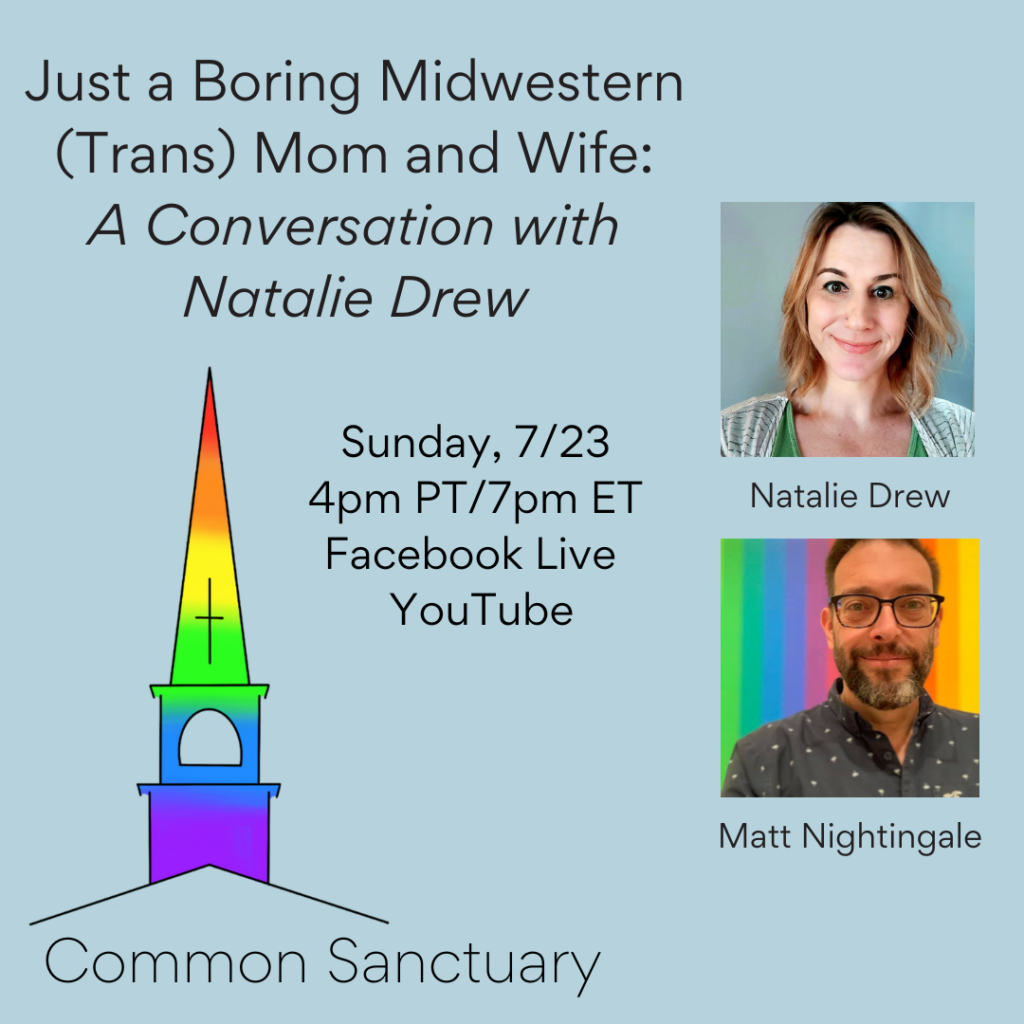
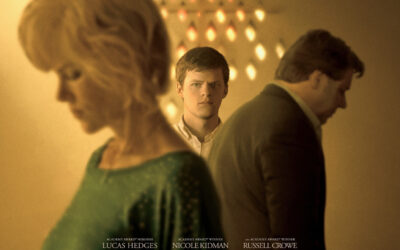
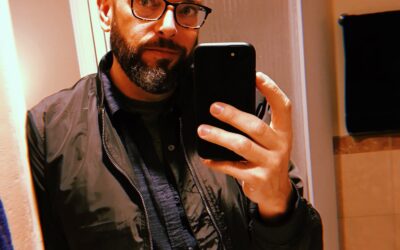

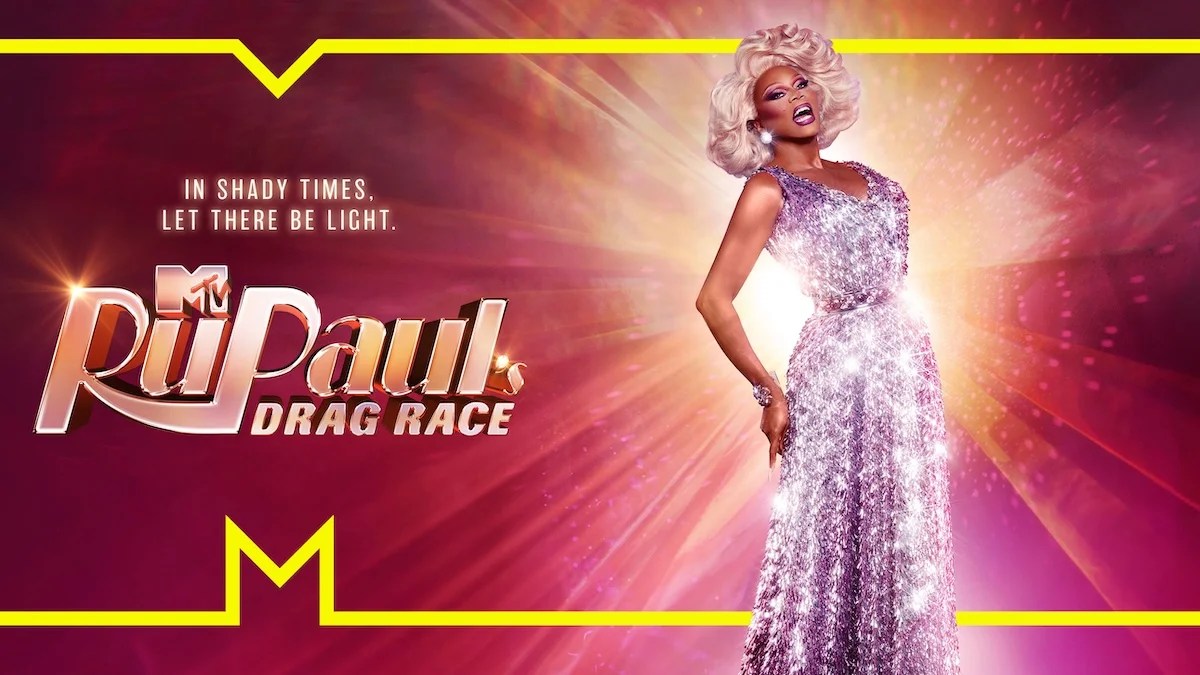

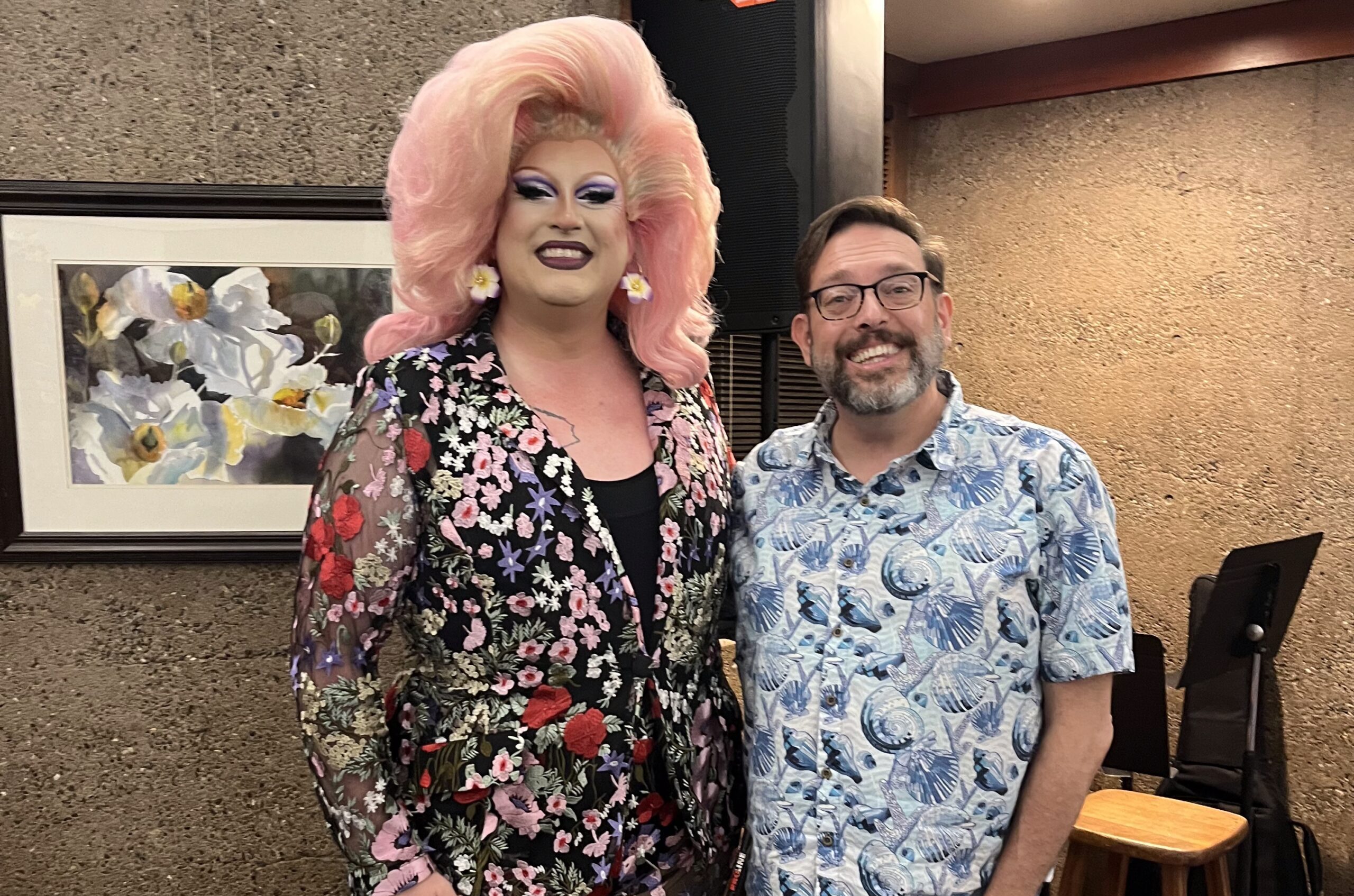
Thank you for this beautiful conversation. To Matt for inviting it, and to Natalie for her openness. I have learned so much by following you both on Twitter. I appreciate your faithfulness in the midst of such hatred. You give me hope for the Christian community.
Thank you, Lynnay. I’m so glad it was meaningful to you!
Thank you to both Natalie and Matt for sharing. I believe the more we can share the realities and stories of the LGBTQ+ community, the more people will fall in love with the beauty God has placed in ALL. You are both lights in this regard!
Thank you so much for this encouragement, John!